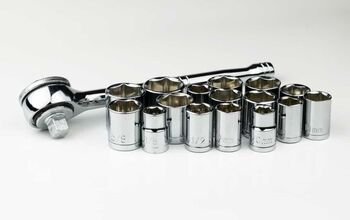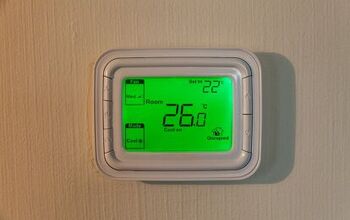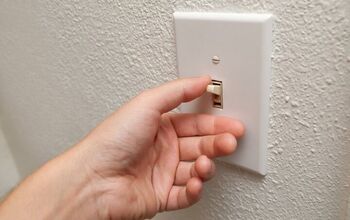Does Furnace Filter Thickness Matter?

Every component of your HVAC system affects its performance and your comfort at home. That even applies to small parts such as furnace filters that many homeowners overlook. So, does furnace filter thickness matter?
Furnace filter thickness affects your furnace’s airflow and its ability to filter dirt, dust, and debris. Thick furnace filters offer superior filtration and can last up to 5 months longer than thin filters in some cases. However, you can strain your furnace if you exceed the maximum MERV rating with a filter that is too thick.
Refer to the maximum MERV rating on your furnace before you replace your filter. Switch to pleated furnace filters because they last much longer than fiberglass filters.
Follow along as we explore how furnace filter thickness matters.
Are Thicker Furnace Filters Better?
Thicker furnace filters are typically much better than thin filters. Thin filters can quickly become dirty and clogged with dust and debris. It is difficult for air to move through a clogged furnace filter. This is less of a problem with thicker furnace filters, however, because of the greater surface area.
There is more room on a thicker furnace filter to catch dirt, dust, and debris. Because of that, it takes much longer for a thick furnace filter to become clogged. Furnace filters that measure 4” can last up to 6 months or longer.
Conversely, you may need to replace your 1” furnace filter in as little as 30 days. Thick furnace filters are especially worthwhile if you have pets. You won’t have to worry about the accumulation of pet hair and debris nearly as much as if you had a thin filter.
Do Thicker Furnace Filters Make Your Furnace Work Harder?
Thick furnace filters can make your furnace work harder if they exceed the MERV rating. The Minimum Efficiency Reporting Value or MERV scale goes up to 16. Each furnace has a maximum MERV rating, which indicates the furnace filter thickness it can handle.
The average furnace can handle filters with a MERV rating of 8-11. Exceeding the maximum thickness can make it harder for your furnace to push air through the filter. Simply refer to your furnace’s maximum MERV rating so that you don’t exceed it and experience weak airflow.
Otherwise, thick filters aren’t a problem unless they are incompatible with your furnace. A furnace will strain itself even with a thin filter if it is clogged. The best way to avoid straining your furnace is to replace your filters as needed before they become clogged.
Do More Expensive Furnace Filters Really Make a Difference?
Expensive furnace filters can sometimes offer superior dirt, dust, and debris filtration. Some high-end furnace filters are even rated to filter mold, mites, pollen, and bacteria. It is worthwhile to upgrade to a pricier furnace filter if you have respiratory problems such as COPD and asthma.
Pricey furnace filters can also help reduce your workload. Specialized, pleated furnace filters significantly reduce the dust and debris that rests on the surfaces in your home. The main difference between standard and high-end filters is that pricier filters typically have an electrostatic charge. This charge lets the filter capture the smallest dust particles and irritants.
How To Make Furnace Filters Last Longer
You can make your furnace filter last longer if you have your ducts cleaned. Much like furnace filters, air ducts can become clogged with pet hair, dirt, dust, and debris. The dust and debris in your air ducts can eventually make their way into your furnace filter.
Typically, you only need to clean your air ducts once every 3-5 years. However, you may need to clean them much sooner if you live in a small house with several pets. Choose pleated furnace filters over traditional fiberglass filters because they last much longer.
Avoid setting your thermostat to “On” for too long because the blowers will constantly run. This can shorten your furnace filter’s lifespan. Finally, you can make your furnace filter last longer if you choose a bigger one that measures at least 4” if it’s compatible with your furnace.
Summing It Up
Furnace filter thickness is important and affects its lifespan. For example, a thin furnace filter that measures 1” thick may only last for a month in some cases. A filter that measures 4” or thicker can easily last for 6 months before you need to replace it.
Clean your air ducts every 3-5 years so that your furnace filter doesn’t get dirty too quickly. Look for thick, pleated furnace filters that don’t exceed the maximum MERV rating. This will provide more surface area to catch dirt, dust, and pet hair. Don’t run your blowers all the time or your furnace filter will wear out much faster.
Related Guides

Nick Durante is a professional writer with a primary focus on home improvement. When he is not writing about home improvement or taking on projects around the house, he likes to read and create art. He is always looking towards the newest trends in home improvement.
More by Nick Durante



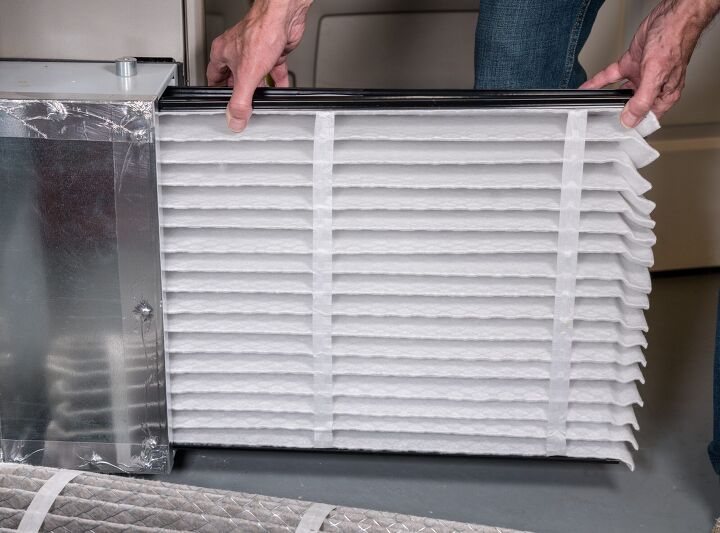






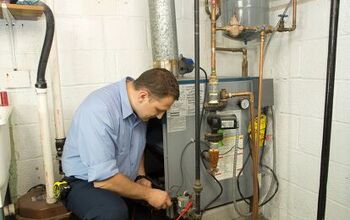


![10 Best Cordless Leaf Blowers – [2022 Reviews & Ultimate Guide]](https://cdn-fastly.upgradedhome.com/media/2023/07/31/9070789/10-best-cordless-leaf-blowers-2022-reviews-ultimate-guide.jpg?size=350x220)



